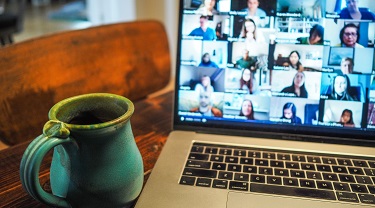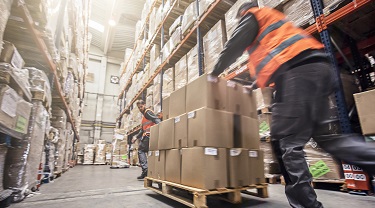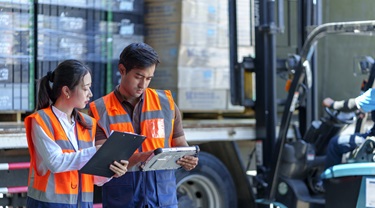
Listening Our Way Through a Pandemic Crisis

When you’re in the middle of a crisis, it’s a natural instinct for most of us to want to act. That’s certainly the case for all of us at EDC. The need to do something to help Canadian companies is in our DNA.
Since March, when we first began to understand the full depths of the economic crisis confronting us, there’s been a ton of action.
Working in support of the Government of Canada’s economic response to the COVID-19 crisis, EDC has provided hundreds of millions of dollars in guarantees to help financial institutions deliver much needed liquidity. We’ve made credit insurance more flexible, affordable and available, and been a key facilitator for the delivery of hundreds of millions of dollars in loans on behalf of the Government of Canada through the Canada Emergency Business Account. We’ve even helped a number of companies pivot to the important business of producing life-saving personal protective equipment (PPE) and solutions for frontline workers in the battle against the virus.
But there’s a less obvious side to our efforts that attracts less attention, yet is still fundamental to our being effective and responsive in this time of national need.
We’ve been listening.
We’ve been reaching out to hear what our stakeholders, our partners and, of course, our customers think of the job we’re doing.
Much of the feedback we get comes through formally organized consultations, either face to face (or via Zoom, these days) or via surveys; still more feedback arrives through less formal channels, through calls to our account managers, to me, or via social media. But however it comes to us, I believe all of it is important – particularly when you’re trying to make a difference in the middle of a crisis.
Not everything we’ve heard has been positive over these recent months. There has been criticism that some of our processes have been burdensome. For some, the programs have been too slow, or not generous enough. We’ve also heard from civil society groups, challenging our approaches to human rights and climate change.
We take this feedback seriously because we know that, sometimes, your critics are right. That’s especially true when you’re working as hard and as fast as we are to try to provide relief in a crisis; you’re bound to make some mistakes. Sometimes all you can do is launch, watch, listen, learn, and try again. Some of our ideas have been very good out of the gate. Others needed improvement.
But this crisis has driven home the lesson that bad ideas aren’t, themselves, the mistake. The mistake is sticking with a bad idea after you’ve learned it’s bad.
That’s why listening is such an important part of our job.
In the course of an average year, EDC makes a huge effort to reach out to industries, associations, stakeholder groups and civil society. And when we’re in times like we are now, times of “business as unusual,” listening has to be a central part of our organizational practice.
So, when you’re in a crisis, like the one we find ourselves in today, the last thing you should do is abandon your outreach practice. In fact, in 2020 EDC has doubled down. We’ve made listening and engaging a priority, and I couldn’t be more proud. We’ve continued with our tradition of consulting key industry associations through our annual stakeholder panel (which, back in June of this year, took place virtually for the first time in its history). In October we’re also hosting our first civil society stakeholder meeting, designed in consultation with groups advocating for the protection of the environment, human rights and governance accountability, and bringing together over forty organizations from across Canada.
These engagements enable us to learn what is working, and what needs to change, and to try to surface the new ideas and approaches that will help us ensure that our support delivers the greatest impact where it is needed the most – and does so in a way that is consistent with EDC’s values of sustainable and responsible business.
In the end, that is the priority. And listening – carefully, attentively, humbly – will help to get us there. Which is why I’m so grateful that – along with taking action – listening is another very big part of EDC’s DNA.
















